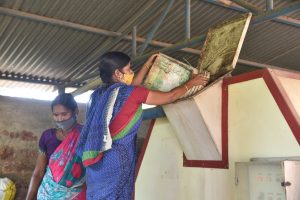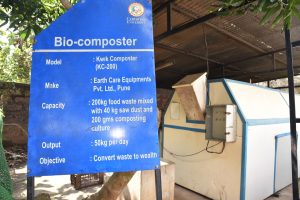Assessing the Quantity of Food Wastage
Centurion University of Technology and Management measures food wastage through across all campuses by:
- Waste audits: Encompass the systematic collection and analysis of food waste derived from diverse sources, such as dining halls, cafeterias, and food service areas. There is a dedicated team with the ability to categorize and measure the food waste garbage in order to ascertain its composition and quantity. The audits are carried out every quarter in a year and the report helps to understand the reasons of wastage and measures are taken to minimize the same. Across the campuses the University is able to reduce the wastage of food from 100321 MT in 2021 to 182.5 MT in 2022. The significant decrease can be attributed to the alteration in food vendors, who conducted data analysis across all campus locations and devised an app-based solution. Within this application, students can access the menu and exercise the option to either select or decline the day’s meal offerings. This innovation aids in optimizing food production quantities, taking into account instances where students may choose not to partake in the offerings. The following picture details are the screenshot of vendor app, Stanza Living


2. Check out Data: The University checks the utilization of cafeteria checkout data. It enables enables to estimate the quantity of meals offered in comparison to the actual consumption, hence facilitating the calculation of possible food waste.
3. Sensitizing the student: The Culture Social Responsibility club of the University sensitizes students to for preventing food waste through engagement activities like participation in free food distribution at orphanage, old age homes and through regular workshops.
Centurion University converts the wasted food from different sources into organic manure through Biodigester installed in the University. Various biodigesters of varying capacities have been installed throughout the university campuses. For instance, the Bhubaneswar campus is equipped with a biodigester with a capacity of 700 Kg, which yields approximately 150 kg of organic manure derived from food waste. These biodigesters maintain a production ratio of roughly 1:6, with one part waste generating six parts of valuable organic manure. You may download the detailed report for more information.

